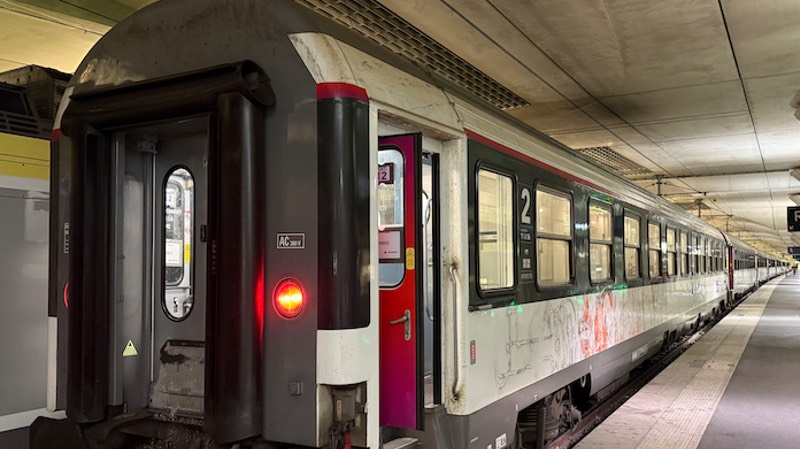Night trains in Europe – our current assessment:
Many factors prevent rail from playing a greater role on connections across Europe. Nevertheless, much is politically determined and can therefore be changed in the medium term. At our night train conference from 26-28 September in Berlin, we will give a preview of our target network, which sensibly replaces flights and thus emits 28 times less per passenger on the same route (see our study ).
Only a few connections can be operated profitably all year round under regular conditions. Many (short-term) construction sites eat up the small margins. The fact that night trains still run in Germany is due to the political will in neighbouring countries. This is dwindling:
- ÖBB is converting ordered night trains into day trains (our report)
- Switzerland is not using the planned amount of funds for night trains despite having secured them in a referendum
- In France, the start-up subsidy for the Paris-Berlin night train is coming to an end. Continued operation is questionable.
- Belgium has not extended subsidies for night trains
- Poland creates new night train routes, but not to Germany
The German government does not consider it necessary to strengthen night train services:
According to “Zeit”, the BMV does not consider two simple measures demanded by Back-on-Track to be necessary: The reduction of track access charges for night trains to the minimum recommended by the EU, as well as the abolition of VAT on international train tickets (as was recently the case in Austria). Air transport is exempt from this and is nevertheless demanding further relief.
“When the German government says that the German VAT rate is in the middle range, it is ignoring the fact that VAT is only charged in four other EU countries. Everywhere else, trains are on a par with planes,” says Juri Maier, Chairman of the German branch of the European pro-night train initiative “Back-on-Track”.
Transport Minister Schnieder also does not want to reduce the track access charges for night trains, which are high by international standards. “This clearly contradicts the recommendations of the EU Commission, according to which night trains should not pay more than marginal costs,” says Maier.
However, it is not only in Germany that there is a lack of political will to develop night trains as an alternative to flying. While China is developing high-speed night trains and increasing their cost-effectiveness through new space concepts, the EU lacks a regulatory framework for investment.
“There is no Europe-wide authorisation standard, train paths are only allocated for one year. Subsidies are sometimes given for electricity, sometimes for train path fees, sometimes for commuters travelling on the train, sometimes as start-up funding. Under these conditions, who should invest in new trains that will be purchased for 30 years?” asks Juri Maier.
This is why Back-on-Track is also calling on the EU:
- To create an authorisation standard for night trains in the standard gauge network, as it already existed with “RIC”,
- define an ambitious expansion target for a European night train network, and
- to support its development financially.
To this end, the European Back-on-Track network is presenting the following at this year’s night train conference
on Friday, 26 September 2025 at 16:45
(Stadtwerkstatt Friedrichshain-Kreuzberg in Berlin, U6 Mehringdamm)
will present a proposal for a Europe-wide tender for night train lines, discussed with various stakeholders, followed by a discussion with Matthias Gastel, Member of the German Bundestag/co-initiator of Netzvision 2035 and Sille Svenkerud Førner from Norske Tog, a state-owned vehicle pool that procured new day and night trains three years ago. This discussion will be held in German, the conference in English.
Prior to this, from 16:00, Back-on-Track will provide an insight into the status of the “Target Network 2032” project, a meta-study on night train concepts and their consolidation and supplementation.
_____
Our night train map shows the complete European route network
